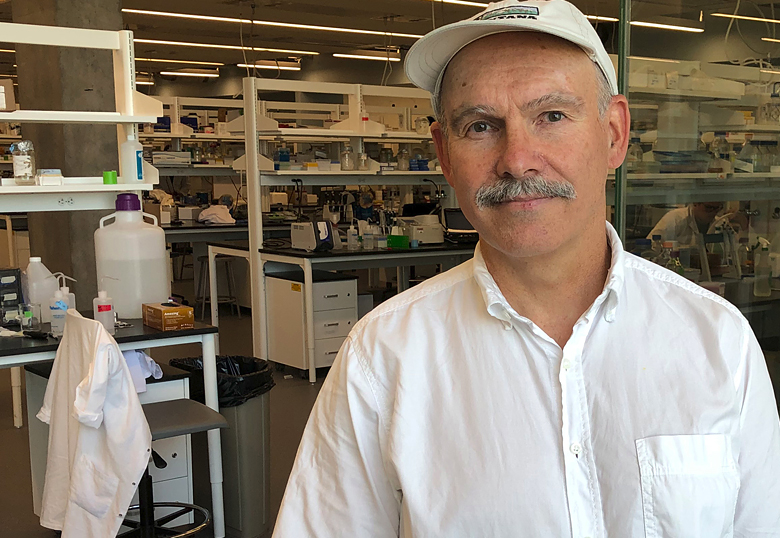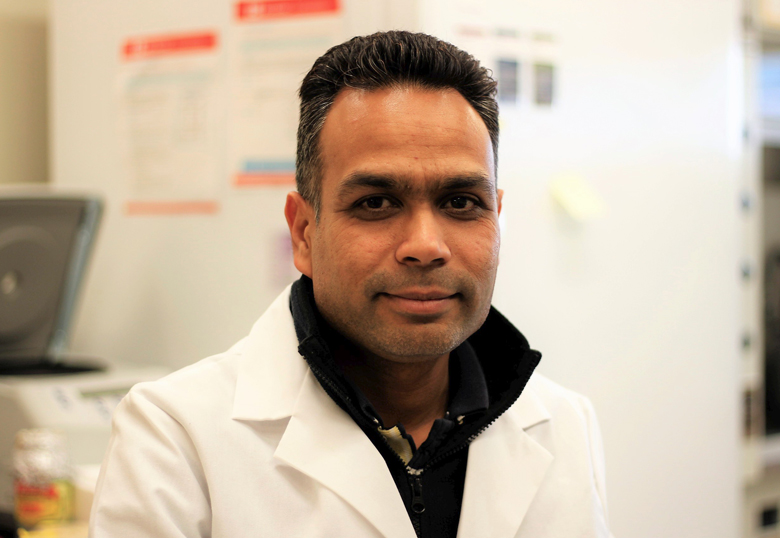University of Lethbridge researchers, in partnership with scientists at Applied Pharmaceutical Innovation (API), received funding from MITACS to develop a drug to treat the SARS-CoV-2 virus, which is responsible for the COVID-19 pandemic.
The research team includes U of L’s Drs. Trushar Patel and Borries Demeler (Department of Chemistry and Biochemistry), University of Alberta’s Neal Davies (Faculty of Pharmacy and Pharmaceutical Sciences), and API’s Rakesh Bhat (Director of Laboratory Science). API is an Edmonton-based, non-profit organization that partners with industry and supports researchers and start-ups. These researchers are combining forces to make the best use of their equipment and expertise in a bid to develop a new treatment for COVID-19.

“Despite extreme efforts by health agencies and governments worldwide, no effective treatments or vaccines are available yet,” says Demeler. “While there has been a major focus on the development of new vaccines, the development of novel therapeutics represents a critical need as well. SARS-CoV-2 has shown unprecedented mortality, with over 500,000 deaths worldwide so far, and unfavourable long-term outcomes are observed in recovered patients. Therefore, our focus is on the development of a treatment for COVID-19. API provides complementary technology not available at the U of L to further enhance the capability of our research endeavour, and serves as the industrial partner required for our joint MITACS grant.”
Patel and Demeler are looking to inhibit the virus’s ability to replicate by targeting the interactions between viral proteins and the human host cell machinery responsible for replicating the virus. Their goal is to create a drug treatment capable of preventing these interactions.

“As part of this endeavour, students at the U of L will be trained in protein purification and structural studies, characterization of molecular interactions by biophysical methods, computational biology, and drug-screening,” says Patel. “The MITACS Accelerate grant is designed to shorten the time of bringing a therapeutic from bench-to-bedside and help us defeat this insidious virus.”
